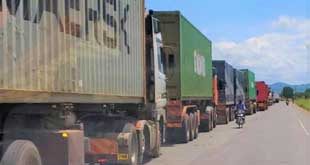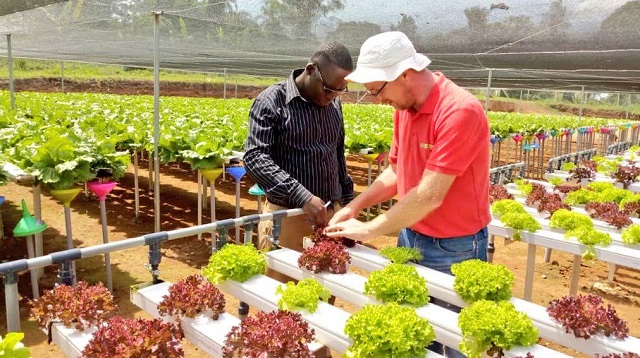
Ronald Musoke explains why five years of consultations have failed to re-negotiate Double Taxation Agreement
Kampala, Uganda | RONALD MUSOKE | The Netherlands has been one of the top ten sources of foreign direct investments (FDI) for Uganda since the two countries signed the treaty in 2004.
Today, there are about 200 companies with a tie to Uganda – partly or wholly owned by Dutch people— according to the last count done in 2020 by the Netherlands-African Business Council.
Many of these companies have invested in the horticulture sector, particularly high-value crops such as vanilla, tea, cocoa, coffee and sugar; dairy and piggery, as well as tourism, infrastructure, transport, ICT and marketing. Several Dutch companies have invested in Uganda in recent years with assistance of the Netherlands Enterprise Agency (RVO).
Between 2018 and 2019, FDI from Netherlands-registered companies was reported to be about €1.6 billion, making Uganda one of the top foreign direct investment destinations for Dutch firms on the continent according to a report published in 2021 by the Policy and Operations Evaluation Department of the Dutch Ministry of Foreign Affairs.
Uganda’s pleasant climate, relative safety and security and near-perfect location in the centre of Africa are some of the main reasons Dutch entrepreneurs often cite in choosing to invest here.
Wagagai Ltd, one of the world’s largest flower-growing firms which has been growing and exporting begonias, chrysanthemums and poinsettias flowers and many other ornamental plants to the Netherlands and other European markets from its base on the northern shores of Lake Victoria in Wakiso District points at the “Copious sunlight, constant humidity and mild temperatures” for its choice of Uganda. The flower farm’s proximity to Entebbe Airport, just 20 minutes away, is yet another factor.
It also helps that Uganda is right in the centre of the continent with neighbours such as DR Congo, South Sudan, and Kenya which are interested in buying products from Uganda, according to the Netherlands-Uganda Trade and Investment Platform (NUTIP), an association that brings together both Dutch and Ugandan entrepreneurs to promote common private sector investment interests.
Unilever-Uganda— the home and personal care products company— and KLM Royal Dutch Airlines were perhaps the only recognizable Dutch companies before the signing of the DTA about 20 years ago. Today, most Dutch investors who have invested in Uganda have done so in the country’s agricultural sector, Major James Mutabaazi, the Tax Manager at Mazars, an international audit, accountancy, tax and legal advisory firm for Dutch clients with business operations in Uganda under NUTIP told The Independent in an interview at the firm’s head office in Bugolobi, a Kampala suburb.
However, the Dutch Ministry of Foreign Affairs says in a report that the large number of Dutch companies in Uganda, include non-Dutch investors that routed their investment through so-called Special Purpose Enterprises (SPEs). This is the basis upon which critics of Uganda’s Double Taxation Agreements (DTAs) with the Netherlands find it ‘harmful’ to Uganda’s domestic revenue mobilization agenda.
DTAs are treaties between two states with the main aim of avoiding taxing business entities or even individuals twice. It applies to income, capital gains, dividends, interests, royalties, and technical fees.
Since its independence in 1962, Uganda has signed Double Taxation Agreements with close to a dozen countries including; Belgium, Denmark, India, Italy, Malawi, Mauritius, the Netherlands, Norway, South Africa, the UK and Zambia.
Grace Namugambe, the Programme Officer, Financing for Development at the Southern and Eastern Africa Trade Information and Negotiations Institute (SEATINI) says countries often sign such treaties to avoid issues of unfair taxation where an entity can potentially be taxed twice.
“If someone or a company is to be taxed in one jurisdiction, you want them to be exempted in the next, otherwise, it is not only unfair but also distorts the efficiency of capital if it is going to be taxed twice,” says Corti Paul Lakuma, a research fellow based at the Economic Policy Research Centre in Makerere University.
“Besides being an investment incentive, these agreements try to address an equity and efficiency concern in the taxation regime,” Lakuma told The Independent. DTAs are also entered into to try to attract foreign investments and for strategic political reasons.
DTAs and tax revenue loss
Uganda first signed a Double Taxation Agreement (DTA) with the Netherlands in 2004. However, in 2018 the two countries began a process of reviewing it to among other reasons, block abuse by non-Dutch multi-national companies registered as Dutch companies to exploit treaty benefits. This practice has left Uganda losing out on the much-needed tax revenues. But, five years on, the re-negotiation of the agreement has not moved as speedily as Uganda probably expected.
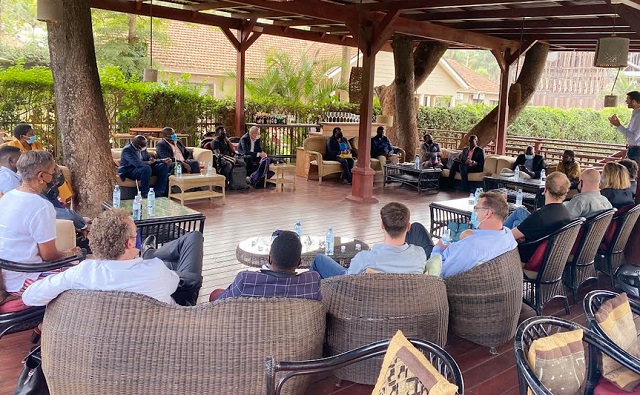
Gerald Namoma, a senior economist in the tax policy department at the Ministry of Finance, Planning and Economic Development is part of the negotiating team that includes senior government officials from the Ministries of Finance; Foreign Affairs, Justice and Constitutional Affairs and the Uganda Revenue Authority (URA).
He recently told The Independent that when the Uganda-Netherlands DTA was originally signed, its objective was to strengthen the economic relations between the Netherlands and Uganda; remove tax obstacles, promote trade and investment, and transfer technology.
“DTAs create a stable framework which ordinarily would be lost with the frequent changes in the local tax legislation,” he told The Independent. He said in case of tax payers under Dutch jurisdiction doing business in Uganda, the government can assist in collecting tax on behalf of the Dutch government and vice versa.”
“The Netherlands has a big financial centre and people can hide their money there but when people know that the tax enforcement mechanisms can reach you wherever you are, then they are tempted to comply,” he said.
Namoma told The Independent that Ugandan and Dutch negotiators have been engaging on the issue. The Dutch Ministry of Finance also confirmed to The Independent in an email on June 5 saying multiple talks have taken place between the two countries’ negotiators since 2019.
“So far this has not yet resulted in a new tax treaty between the Netherlands and Uganda. While we cannot share the contents of or positions taken in specific treaty negotiations, the Dutch tax treaty policy provides some insight into the Dutch treaty policy (also in relation to developing countries),” the Dutch finance ministry said.
Outstanding issues
Namoma told The Independent that both governments have since agreed on most of the issues except five areas of concern. He says the Uganda government does not want the DTA to be used to avoid taxes accruing from the country’s emerging petroleum sector. He says instead, the government agrees on specific fiscal regimes with the oil and gas investors.
The other sticky issue concerns Capital Gains Tax on the sale of assets. Namoma says under domestic law, the Uganda government usually has a right to tax the investor (when they are selling on their asset). However, this provision has been relaxed under the DTA framework.
For instance, in Uganda, the URA imposes a capital gains tax of 30% on sale of assets yet it is tax-exempt in the Netherlands. This clause, the tax experts argue, can be abused when companies structure their activities to ensure that the taxing rights are in the Netherlands which exempts capital gains tax. The definition of capital gains is also broad and it is not only limited to offices but includes places where companies sell items, and receive orders including warehouses.
The other issue is the threshold for taxation of business activities in Uganda in terms of time and nature of activity. Namoma explains that whereas the Dutch want very large thresholds, Uganda prefers a very low threshold to secure better taxing rights. Treatment of withholding tax; payment of dividends and royalties in the DTA are the other areas of concern for the government. “If these are going out untaxed, there is a problem,” Namoma says.
Namoma told The Independent that the government also finds issue with the clause on technical services which are essential to most developing countries. He says the DTA, for instance, provides for taxation on activities which have run for more than four months within any given period of 12 months period but to avoid it, some companies ensure they run for less than four months.
“From our analytical work and engagement with different stakeholders, we were able to catch the red flags that the Dutch DTA was one of those that were being used mostly to avoid unfairly paying taxes that are due to Uganda,” Namoma adds.
Other experts told The Independent that the stalemate between the two governments appears to occur because the Dutch government’s fiscal treaty policy accommodates the positions of developing countries during tax treaty negotiations but does not expand the scope of the treaty to cover all their interests. They say the Dutch aim for better tax regime for their investors compared to other foreign (and local) investors in partner countries.
In an email to The Independent, the Dutch Ministry of Finance said the Dutch government aims to include anti-abuse-provisions in existing and new tax treaties. That is why, it says, the Netherlands has signed and ratified the Multilateral Convention to Implement Tax Treaty Related Measures to Prevent Base Erosion and Profit Shifting (BEPS) which is a Multilateral Convention (MLC) that includes anti-abuse-provisions, including the tax treaty with Uganda.
“In short, if two states are a party to the MLC and there is a ‘match’, the anti-abuse-provisions from the MLC become effective in the existing treaty-relationship,” it says.
The Netherlands has listed the tax treaty with Uganda as a ‘covered agreement’ under the MLC, however, Uganda is not a party to the MLC, the Dutch government says. It says when it approached Uganda to add anti-abuse-provisions to the tax treaty bilaterally, Uganda requested to also revise other parts of the treaty.
According to a ministerial statement dated Feb.21, 2023 addressed to the President of the House of Representatives in the Dutch Parliament, the Netherlands appears to be engaged in similar negotiations with at least 20 other countries.
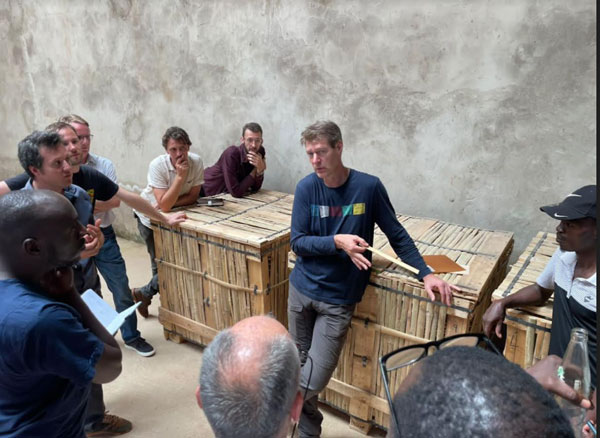
In the statement, the Dutch Finance Ministry says the Netherlands has made a proposal for the conclusion of the negotiations and is now waiting to see whether Uganda can agree to this. “The Netherlands would like to add more anti-abuse measures to the treaty and the treaty policy also offers room in other areas to meet additional wishes of Uganda,” the ministry says.
Low tax revenue base
Despite Uganda coming up with an ambitious domestic revenue mobilization strategy (2019/2020-2023/2024) to boost local revenue collection, its tax to GDP ratio stands at less than 14% –the lowest within the East African Community.
Harmful clauses in some DTAs like the one between the Netherlands and Uganda have been cited as some of the factors for the low tax-to-GDP ratio which in turn have led the government to depend on foreign debt to plug the budget deficit. At the moment, the country’s public debts stand at Shs 86.6 trillion, representing 53% of the GDP which is beyond the debt ceiling as per the International Monetary Fund.
The surge in public debt beyond the ceiling point signals a likely rise in interest rates on new loans in future and an increase in loan service obligations, leaving the government with meagre resources to provide other basic services such as health and education to the population.
Grace Namugambe, the Programme Officer, Financing for Development at SEATINI told The Independent that countries sign DTAs to encourage financial transparency but the treaties also have an ugly side to them.
In a recent report published by Oxfam, one of the vocal tax justice campaigners, Uganda loses more than Shs2 trillion (US$ 547 million) annually with most of this money being taken out by multinational companies through their aggressive tax avoidance mechanisms such as profit shifting, trade misinvoicing and double taxation treaties.
Other tax justice campaigners have also flagged the Uganda-Netherlands treaty because of its potential to be a treaty shopping route in the field of capital gains tax as it prevents the country from taxing the sale of shares in a Ugandan company by a Netherlands company.
This creates a window for a foreign investor to avoid paying capital gains tax on the sale of immovable property in Uganda by structuring the purchase through a vehicle in the Netherlands.
In fact, the DTA between Uganda and the Netherlands is responsible for the capital gains tax dispute involving URA and Zain Telecom, the forerunner to Airtel, with over US$ 85 million (about Shs 314 billion) worth of tax revenues at stake.
URA vs Zain
The matter between URA’s Commissioner General v Zain International BV remains under arbitration. According to court documents, Zain International BV disposed of its 100% shareholding in Zain Africa BV to Bharti Airtel International— companies which are both registered in the Netherlands. Zain Africa BV, the subject of the disposal, had 100% shareholding in Celtel Uganda Holdings BV which owned 99.99% of Celtel Uganda Ltd.
Celtel Uganda Ltd’s s shares in Uganda were not transferred and its property, movable or immovable, was not disposed of. The transfer of the shares in Zain Africa BV took place in the Netherlands. The URA raised an assessment of capital gains tax against Zain International BV on the resultant gain realized from the disposal of shares.
However, Zain International BV objected to the assessment and noted that the transaction was only concerned with the transfer of shares of Zain Africa BV in the Netherlands, and no shares in Celtel Uganda were disposed of. The URA also objected arguing that the transaction under consideration is one of gain arising from the disposal of an interest in immovable property in Uganda. Almost a decade on, the issue remains under arbitration.
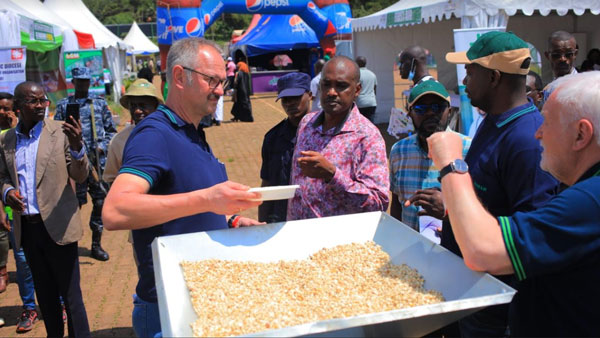
Experts say this case shows how Uganda could be losing a lot of revenue through transactions or indirect transfers of capital assets since it does not have any provision regarding the taxation of property in rich countries such as the Netherlands.
Mwajumah Nakku Mubiru, the Manager VAT and Income Tax Litigation in the Department of Legal Services and Board Affairs at the Uganda Revenue Authority told The Independent URA has about five related cases involving Dutch registered companies here.
“The Netherlands world over is perceived as a good jurisdiction for treaty shoppers. So, it has a reputation for being a pass-through jurisdiction where a number of non-Dutch companies register there and do their aggressive tax planning,” she told The Independent.
Trade promotion experts’ views
Onesmus Mugyenyi, the Deputy Executive Director of the Advocates Coalition for Development and Environment (ACODE), a Kampala-based public policy thinktank told The Independent that “treaty shopping” is the main reason why the DTA between Uganda and the Netherlands has attracted the most scrutiny by civil society.
“What’s the intention of these companies registering their operations in The Netherlands? Is it because it is a Dutch company? Is it because it is doing business in The Netherlands or the whole intention of this registration is to make sure that it benefits from the provisions of the agreement that is otherwise intended to benefit bona fide Dutch companies or Dutch nationals?”
However, Emmanuel Ahurira, a tax expert at Mazars told The Independent that the perception from tax justice experts that DTAs are responsible for taking out a lot of revenue which would otherwise be taxed in-country is borne out of misconception. He says Uganda as a small economy needs foreign direct investments and has to offer incentives and attractive conditions.
Ahurira says he does not also think that tightening the DTA would substantially improve the URA’s revenue collections arguing that the tax base is still relatively small. Corti Paul Lakuma, the research fellow, also says Uganda cannot run away from DTAs.
“Many corporations have chosen to domicile their corporations in these countries and if we want them to establish their businesses here for our local people to get jobs, for us to get knowledge and technology; that agglomeration effect has a positive economic effect,” he says.
“There will always be winners and losers,” Lakuma told The Independent. “The idea is to have policy tools in your system to compensate the loser. We can improve our tax base but my general study of corporate taxation is that this is a complex area especially because investors are a sensitive group of people who can change their mind and shift their decisions (if pressed).”
****
Reporting for this story was supported by Wealth of Nations, a media skills development programme which is run by Thomson Reuters Foundation in partnership with the African Centre for Media Excellence (ACME).
 The Independent Uganda: You get the Truth we Pay the Price
The Independent Uganda: You get the Truth we Pay the Price

